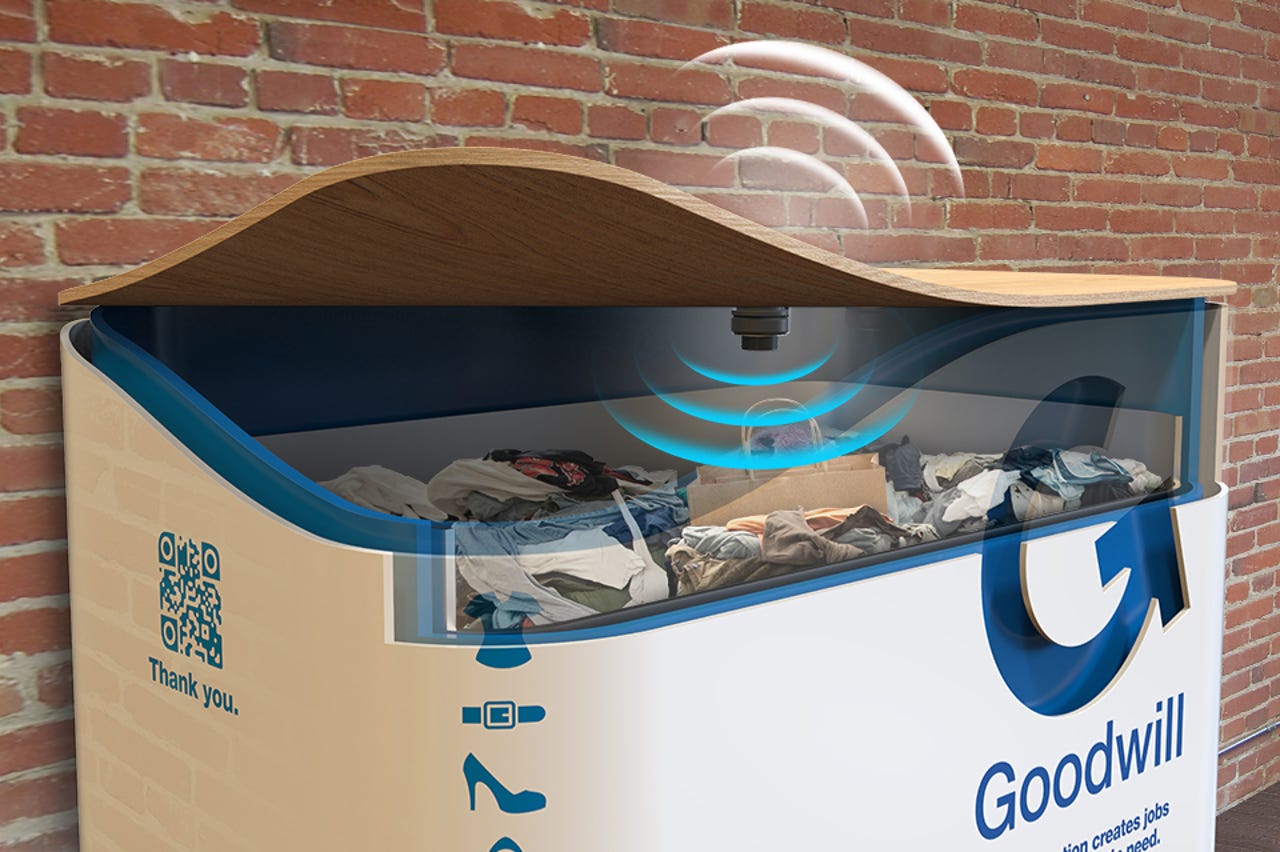Innovation
San Francisco fights textile waste with smart tech
Recycling textiles is smart; the bins San Francisco is using to collect old clothes are smart too.


In the United States, only about 15 percent of all textiles were reused or recycled, about 2 million tons, in 2011, according to the EPA. In San Francisco alone, the city says, 39 million pounds of textiles go to the landfill each year.
While San Francisco is only one part of a larger problem, it's a problem the city is taking on, with smart recycling bins.
With a new Zero Waste Textile Initiative, the city is teaming up with I:CO, a textile recycling and reuse specialist, Goodwill, and other leaders in the nonprofit and business community, to reach a goal of ending textile waste by 2020.
To do that, the city will strategically place Goodwill's innovative goBINs, designed by frog, in apartment buildings throughout the city. By focusing on apartment buildings, the city provides a sizable chunk of the city's population with a convenient way to drop off old clothes, as 40 percent of all housing units in the city are apartments, one of the highest rates in the country.
The technology in the bins allows people who donate to access tax deduction forms by scanning a QR code. Sensors in the bin alert Goodwill when it's time to empty the bins to keep them from overflowing. And when it does come time to empty the bins, an internal rolling cart system shortens the process to less than five minutes.
For textiles that don't make sense to donate to a thrift shop (e.g. clothes with holes), the city is placing I:CO bins at partner retailers -- like H&M and The North Face -- and public spaces (libraries, schools, etc). I:CO then turns those items into other products: carpet padding, insulation, running track or new fabric.
The idea is that, with all these options, recycling textiles won't be a burden. As SFGoodwill's Director of Donations Leslie Bilbro explains in a press release:
"Convenience is the most important factor for people deciding what to do with the items they no longer need. Paradoxically this is why many textiles end up in landfill; historically, it’s just been easier to throw them away. Responding to today’s urban lifestyle, our goBIN will help people do the right thing for the environment and for their fellow residents who need a second chance in life."
[via Fast Co. Exist]
Photo: Goodwill
Related on SmartPlanet:
- Here's a fascinating look at how your typical cotton T-shirt is made
- H&M plans to pay living wage to 850,000 textile workers
- H&M commits to safety plan for Bangladesh factories
- In Peru, litter becomes currency
- Patagonia encourages less buying, customers buy more
- Why H&M wants your old clothes
- Bus companies prosper amid protests in San Francisco
This post was originally published on Smartplanet.com